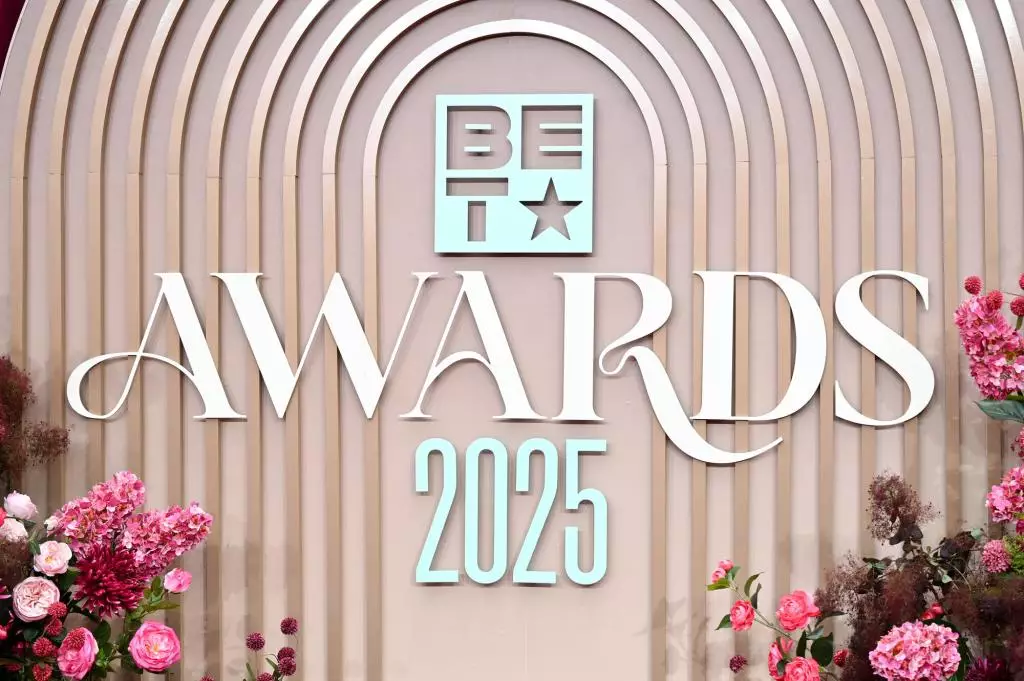The 2025 BET Awards, hosted by comedian Kevin Hart, pulsated with vibrancy and significance as it marked the 25th anniversary of a ceremony dedicated to recognizing the brilliance within the realms of music, television, film, and sports. The atmosphere at the Peacock Theater in Los Angeles resonated with an infectious excitement, as artists and fans alike gathered to pay homage to the trailblazers who have enriched Black culture. Every year, this event serves not merely as an entertainment spectacle but as a poignant reminder of the talent that flourishes within these communities.
Kendrick Lamar emerged as a towering figure at the ceremony with a staggering ten nominations, highlighting his unparalleled impact on contemporary music. With nods for Album of the Year and Best Male Hip Hop Artist, Lamar’s presence signified the ongoing evolution and relevance of hip-hop as a powerful vehicle for social commentary and artistic expression. The night also showcased other heavyweights such as Doechii, Drake, Future, and GloRilla, with each artist contributing to the diverse tapestry that is the modern music landscape.
Contextual Tensions
However, it was not merely the music that dominated headlines this night. As festivities unfolded, the backdrop of Los Angeles bore witness to ongoing social unrest. Protests against ICE raids spilled into the streets, causing a palpable tension that hung over the glamorous event like a dark cloud. This stark contrast served as a vital reminder that, while excellence should be celebrated, the struggles against systemic injustices remain ever-present.
Such a juxtaposition is emblematic of the broader reality faced by marginalized communities in America—a reality where the celebration of achievements occurs alongside the urgent need for change. Even as organizers reassured attendees that the show would continue regardless of the outside turmoil, one couldn’t help but ponder the relationship between art and activism. Wouldn’t it be fitting for artists, acknowledged and celebrated during such high-profile gatherings, to wield their platforms to further highlight these societal injustices?
Powerful Speeches and Luminary Performances
The ceremony kicked off with Doechii’s captivating acceptance speech for Best Female Hip Hop Artist. With fervor and clarity, she eloquently condemned President Trump’s policies and their effects on communities, signaling a call to arms that resonated deeply with many attendees. Her words were not just a celebration of her win; they were a rallying cry against what she termed “ruthless attacks.” This fusion of artistry and activism underscored a sentiment that permeated the entire event: the importance of using one’s voice for the greater good.
The performances that followed, featuring artists like GloRilla, Lil Wayne, and Teyana Taylor, exemplified the creative brilliance from which these entertainers draw inspiration. Each act was more than just a performance—it was a testament to resilience, a bold proclamation of identity, and an affirmation of their place within an industry that has oftentimes relegated Black narratives to the peripheries. The tribute to iconic shows like 106 & Park further exemplified the ongoing evolution of Black representation in media—a history that cannot be overlooked or forgotten.
A Night of Recognition
In addition to the powerful speeches and performances, the night saw the recognition of several industry giants with the Ultimate Icon Award, with honorees such as Snoop Dogg and Mariah Carey basking in the adoration of their peers. It served as a reminder of the profound impact these artists have had on shaping not just music, but cultural narratives across generations.
While the excitement and reflective engagement were palpable, the underlying message of the evening was clear: as Black excellence reigns, so too does the responsibility to speak out against the injustices that shadow these celebrations. What happened that night at the BET Awards was a complex interplay of joy and sorrow, triumph and oppression—a microcosm of the larger struggle for equity that continues to unfold within American society today.

